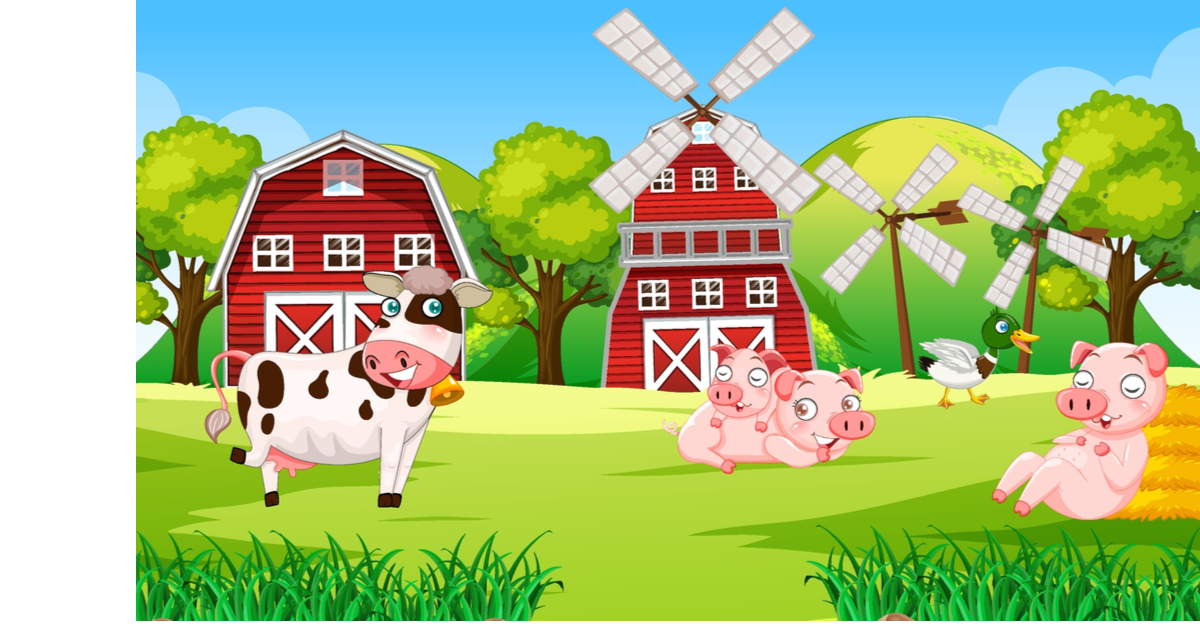
It’s essential to circulate a sheet that lists the characters of Animal Farm and whom they represent; for example, Old Major represents Vladimir Lenin and Napoleon is Joseph Stalin. Napoleon’s name suggests that Orwell also modeled Napoleon on the despotic French military leader Napoleon Bonaparte in addition to despots in general. In order to appreciate the allegory, show the class a complete list that compares the animals to people in Rusian history. (Detailed lists are available at several websites.) Orwell connects the pigs to historical figures in order to warn mankind of the dangers inherent in all totalitarian governments. Orwell’s animals also represent a microcosm or miniature version of humanity, stereotypes of mankind. Boxer is the obtuse, exploited worker who labors for the good of society; Mollie is the vain, foolish female. As for the pigs, Napoleon is the tyrannical leader, Snowball is the popular idea man, and Squealer is the manipulative talker. Orwell humanizes ordinary farm animals to strengthen his implication that people anywhere can be subjected to tyranny.
Propaganda is a key issue to discuss with students. They usually understand that propaganda refers to ideas that are spread deliberately, often deceitfully, in order to influence people’s thoughts and emotions. I ask the class for examples of commercial propaganda. An attractive young woman stands near a late model sports car, for instance; a handsome sports celebrity is pictured wearing a particular brand of running shoes. In fact, most commercial products are designed to appeal to our self-serving desire to be permanently young, athletic, and beautiful. The pigs use propaganda—popular slogans, loaded words, appeals to fear—to keep the ideals of the rebellion ever present in the animals’ minds.
Students should notice Snowball’s courage during the Battle of the Cowshed, which Napoleon later denies. This is a blatant example of revisionist history. They should understand Squealer’s revisionism regarding plans for the windmill. The uneducated farm animals don’t realize Napoleon will become another tyrant just like Mr. Jones. His dogs enforce his despotic rule, and his propaganda agent Squealer slyly alleviates the animals’ fears. As the animals’ history is rewritten, Snowball becomes Napoleon’s scapegoat. The most blatant piece of revisionist history involves this most industrious member of the animal community. Orwell inserts these events to imply the danger of rewriting history.
Most students question the presence of Moses who talks constantly about Sugarcandy Mountain. The raven’s task is to provide hope of a better life for the animals in the hereafter, thus discouraging rebellion. Orwell’s bird blatantly contrasts with the godly law-giver of the Old Testament; his references to a pseudo-religious Sugarcandy Mountain present a flippant contrast to the Promised Land, the land God promised to Abraham and his descendants. The pigs allow Moses to remain at the farm because he tells the animals about a far better place to which they will go after their hard lives. Thus, from the pigs’ perspective, Moses offers an opiate to the masses, to coin Karl Marx’s famous reduction of God-fearing religion.
About the Author
Written by Elizabeth McCallum Marlow
I taught all aspects of the English curriculum at various colleges and private schools for 35 years. I now want to give back what I learned in the classroom about conveying to students a love for literature and a desire to write cogently. I would love to receive comments and questions that can be addressed to me at www.eamarlow0103@gmail.com.

